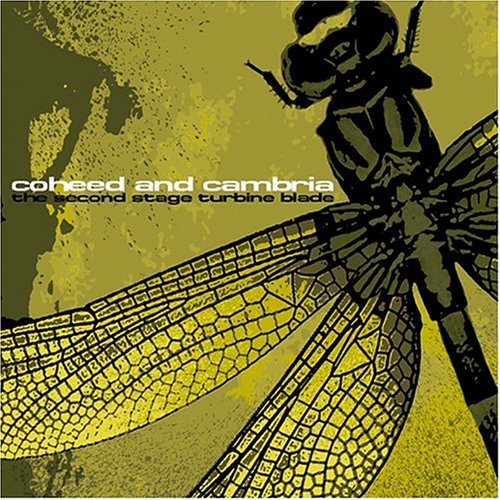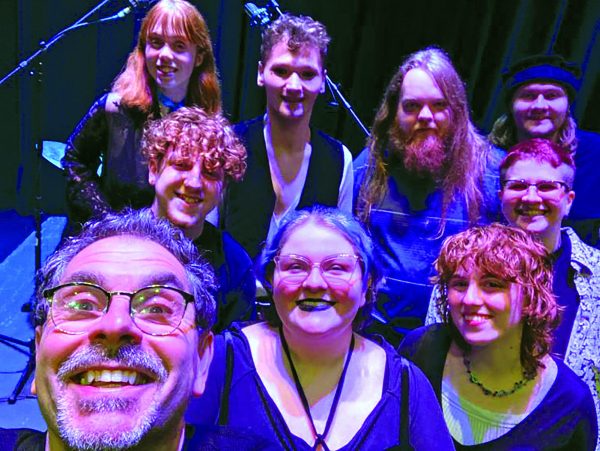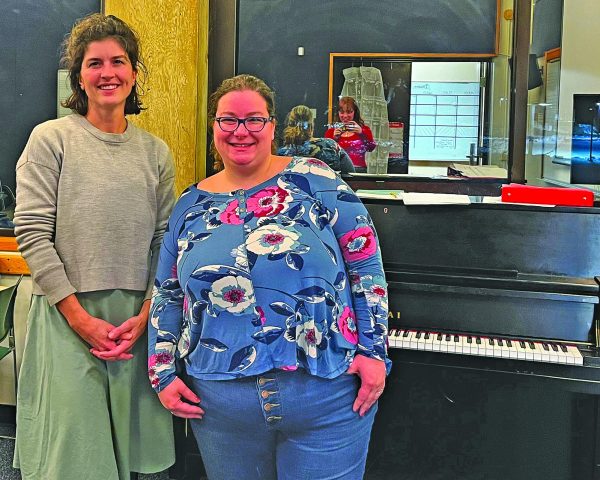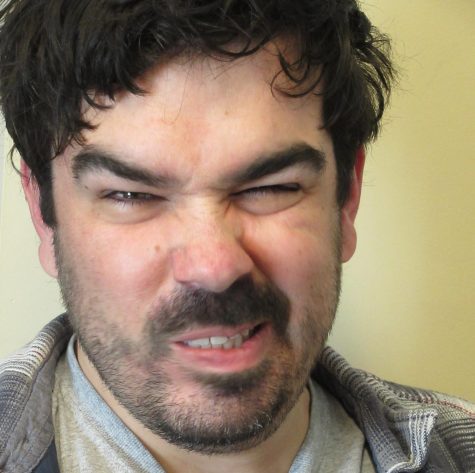A look back at Coheed and Cambria’s first album
It begins with a rustling and a soft twang. The anticipation builds in those few seconds, just before the soft, eerie strings enter. Then the percussion clashes, and the piano player plucks out a melody which will become a motif as the album dives into its rock-metal hybrid epic. This is how “The Second Stage Turbine Blade” sets the tone for the rest of the album, and, in fact, for the next three albums of Coheed and Cambria’s to follow.
The 2002 studio album was the band’s first, and while unpolished, it revealed their potential. Each Coheed and Cambria album, except their latest, “The Color Before the Sun,” is a concept album, telling the science fiction saga of “The Amory Wars,” for which the band’s frontman, Claudio Sanchez, also created a comic book. Most of the comic books are no longer in print and have become somewhat rare.
While the albums tell the story out of sequence, “The Second Stage Turbine Blade” is the listener’s introduction to the violent, woeful story, and the first musical manifestation of Sanchez’s creative genius.
The music is characterized by melodic guitar riffs; interpretive first person lyrics; Sanchez’s high and distinct vocals, including his unique harmonies, and sparse screaming; intense, driving beats; and dynamic fluctuations in volume. These are carried into their future albums and define their sound. The rawness of “The Second Stage Turbine Blade,” the distortion of the guitar, and the unrefined vocal quality set this album apart from the others, as does the story, although it’s difficult to extract from the lyrics. If these are the aspects which set it apart, is it not, then, worse than their later albums? Yes, in terms of technical quality, but the energy of Sanchez’s first musical vision unleashed adds a positive dimension to that rawness. It’s the first step to their refinement in “In Keeping Secrets of Silent Earth: 3” and deserves appreciation.
That said, the lyrics, requiring either interpretation or previous knowledge of the story to understand the events of each song, never improve in clarity. Unless the listener has a rare copy of the corresponding graphic novel, the narrative is unclear at best. What the listener understands best about the epic is the character of the narrator with lyrics like, “Pain is only a pulse if you just stop feeling it,” and “Come know me in a different light now; come know me as God.” In a word: crazy.
Despite the mere hints at narrative, the lyrics manage to depict violence and a world at war. “Everything Evil,” the fourth track, contains lines that indicate a militaristic setting, with an address to a sergeant and talks of a truce. Later, the narrator describes cannibals attacking a young girl. The attentive listener learns a sense of setting through examples like these.
“Everything Evil” turns out to be one of the best tracks of the album, with, coincidentally, the following track, “Delirium Trigger,” as a close second. Like the beginning of the entire album, “Everything Evil” starts quietly and eerily, with the sound of a creaking door and the drum imitating a heartbeat. Then the guitar riffs softly and the Sanchez sings, “Wait for / Everything evil in you comes out.” The following verse draws out the tension from the beginning, until Sanchez reaches a crescendo, and the rest is an artfully crafted expression of emotion, playing with tension and release in an ultimately melodic and masterful composition, employing all of the best elements of Sanchez’s vocals. Eventually, the song reaches a refrain, which fades out and is replaced by a reverberating piano piece, a leitmotif that reaches across every album and correlates to a particularly violent action in the narrative.
Then there’s “Delirium Trigger,” which starts with a guitar riff that is executed with a precision and clarity that has not yet been seen on the album. If “Everything Evil” exemplified what is best of Sanchez’s vocals, “Delirium Trigger” exemplifies the best of their guitars and bass. Sanchez’s vocals are weak in execution here, with an obvious strain on his voice from the moment he begins to sing. This track also demonstrates some of their most skillful uses of dynamic volume fluctuation, emphasizing some of the most intense climaxes with a quiet moment that ushers in a louder one, in which Sanchez sings, “Dear God, I don’t feel alive.” These quiet moments allow for the crystal guitar melodies to shine.
The music overall has a dark tone and grit – in subject, tone, and quality. It grips the listener. “The Second Stage Turbine” was the raw beginning, brimming with talent and creative vision, still unrefined. It was 15 years ago that Coheed and Cambria debuted with this album, and the band has grown and changed, but the beginning of a journey is always the most exciting after all.











